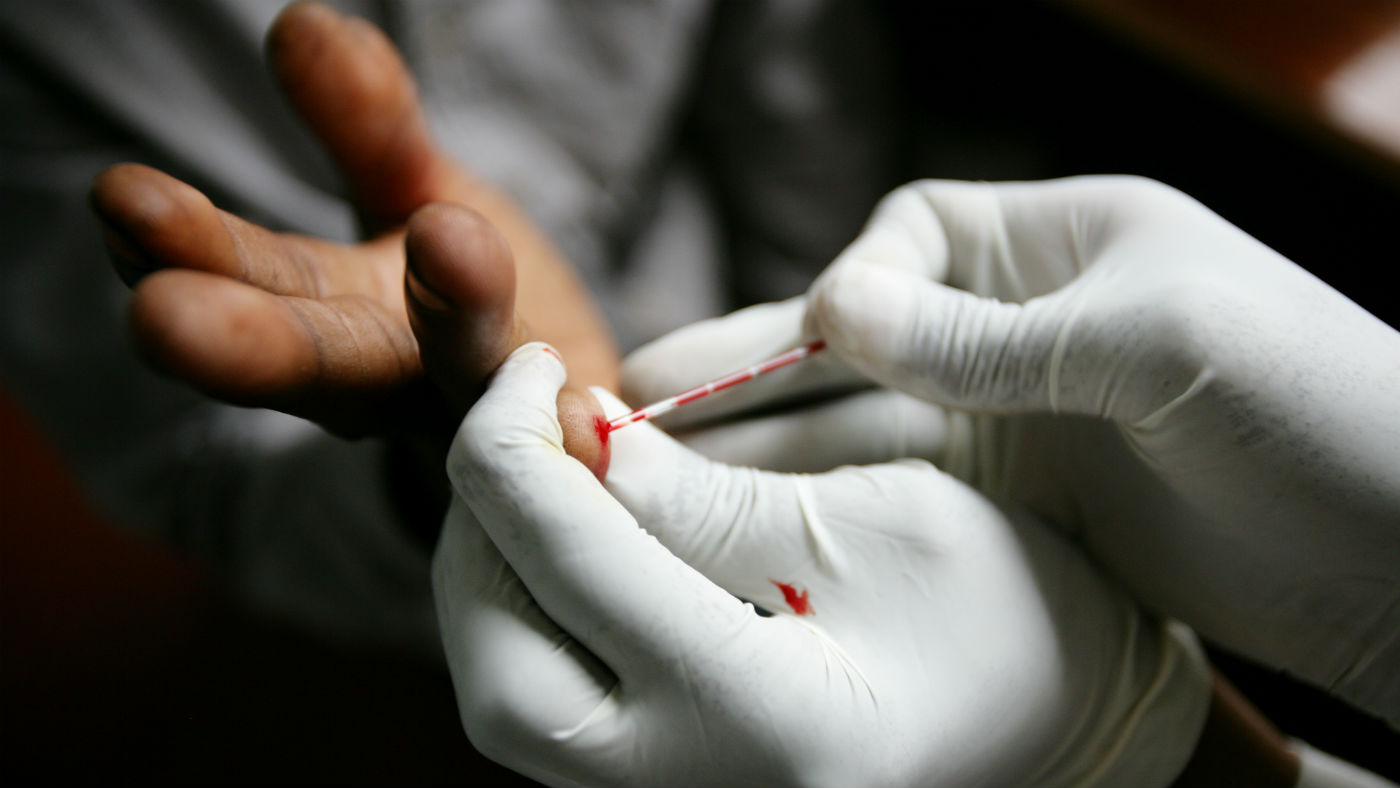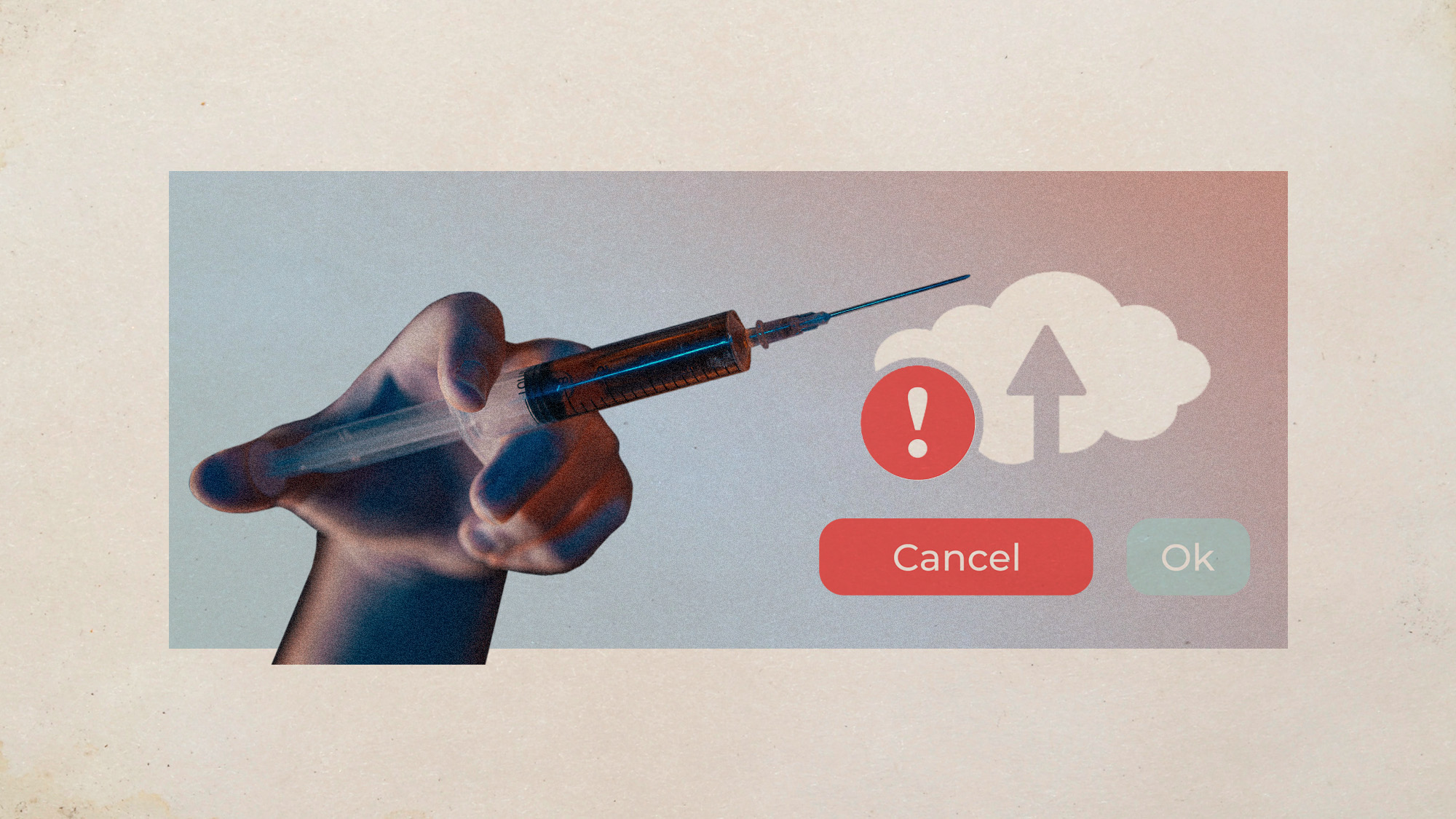Have doctors finally found a cure for HIV?
UK patient ‘free’ of disease after stem cell treatment

A free daily email with the biggest news stories of the day – and the best features from TheWeek.com
You are now subscribed
Your newsletter sign-up was successful
A UK patient has become only the second case in the world to be declared “free” of HIV following stem cell treatment, raising the possibility of a cure for the disease which affects close to 37 million people worldwide.
According to a report in Nature, the as-yet-unidentified male from London who was being treated for cancer, received a transplant that successfully replaced his white blood cells with an HIV-resistant variant.
The science journal, which is to publish the findings in full in May, says that doctors “found that the virus completely disappeared from the patient’s blood after the transplant”.
The Week
Escape your echo chamber. Get the facts behind the news, plus analysis from multiple perspectives.

Sign up for The Week's Free Newsletters
From our morning news briefing to a weekly Good News Newsletter, get the best of The Week delivered directly to your inbox.
From our morning news briefing to a weekly Good News Newsletter, get the best of The Week delivered directly to your inbox.
“After 16 months, the patient stopped taking antiretroviral drugs, the standard treatment for HIV [and] in the latest follow-up, 18 months after stopping medication, there is still no sign of the virus,” it added.
The stem-cell technique was first used a decade ago for Timothy Ray Brown, known as the “Berlin patient”, who is still free of the virus.
“By achieving remission in a second patient using a similar approach, we have shown that the Berlin Patient was not an anomaly and that it really was the treatment approaches that eliminated HIV in these two people,” said Ravindra Gupta, lead author of the study and a professor in University College London's Division of Infection and Immunity.
Effectively, some scientists “believe that the 'London patient' has been cured of the viral infection”, CNN says, although researchers say it is too early to say the patient is “cured” of HIV.
A free daily email with the biggest news stories of the day – and the best features from TheWeek.com
“Although the finding is exciting, it is not offering up a new treatment for the millions of people around the world living with HIV,” says BBC Online Health Editor Michelle Roberts.
Graham Cooke, a clinical researcher at Imperial College London, says that this kind of treatment would not be suitable for most people with HIV, who don’t have cancer and so do not need a bone-marrow transplant, “which is a serious procedure that can sometimes have fatal complications,” says Nature.
“If you’re well, the risk of having a bone-marrow transplant is far greater than the risk of staying on tablets every day,” he says.
Stem cell transplants “typically are harsh procedures which start with radiation or chemotherapy to damage the body's existing immune system and make room for a new one”, The Independent says.
“There can be complications involved and other attempts at treating HIV with this approach have failed” adds the news site.
“Current HIV therapies are really effective, meaning people with the virus can live long and healthy lives” agrees Roberts, “but the reason this case is so significant is that it could help experts who are looking for new ways to tackle HIV and achieve a cure”.
Despite huge advances in treatment over the past two decades, almost 1 million people die annually from HIV-related causes.
“While reports such as these may help in the ultimate development of a cure for HIV,” says Andrew Freedman from Cardiff University, “this is likely to be many years away and until then, the emphasis needs to remain on prompt diagnosis of HIV and initiation of life-long combination antiretroviral therapy.”
-
 Tourangelle-style pork with prunes recipe
Tourangelle-style pork with prunes recipeThe Week Recommends This traditional, rustic dish is a French classic
-
 The Epstein files: glimpses of a deeply disturbing world
The Epstein files: glimpses of a deeply disturbing worldIn the Spotlight Trove of released documents paint a picture of depravity and privilege in which men hold the cards, and women are powerless or peripheral
-
 Jeff Bezos: cutting the legs off The Washington Post
Jeff Bezos: cutting the legs off The Washington PostIn the Spotlight A stalwart of American journalism is a shadow of itself after swingeing cuts by its billionaire owner
-
 High Court action over Cape Verde tourist deaths
High Court action over Cape Verde tourist deathsThe Explainer Holidaymakers sue Tui after gastric illness outbreaks linked to six British deaths
-
 Is the US about to lose its measles elimination status?
Is the US about to lose its measles elimination status?Today's Big Question Cases are skyrocketing
-
 A real head scratcher: how scabies returned to the UK
A real head scratcher: how scabies returned to the UKThe Explainer The ‘Victorian-era’ condition is on the rise in the UK, and experts aren’t sure why
-
 Trump HHS slashes advised child vaccinations
Trump HHS slashes advised child vaccinationsSpeed Read In a widely condemned move, the CDC will now recommend that children get vaccinated against 11 communicable diseases, not 17
-
 The stalled fight against HIV
The stalled fight against HIVThe Explainer Scientific advances offer hopes of a cure but ‘devastating’ foreign aid cuts leave countries battling Aids without funds
-
 Vaccine critic quietly named CDC’s No. 2 official
Vaccine critic quietly named CDC’s No. 2 officialSpeed Read Dr. Ralph Abraham joins another prominent vaccine critic, HHS Secretary Robert F. Kennedy Jr.
-
 This flu season could be worse than usual
This flu season could be worse than usualIn the spotlight A new subvariant is infecting several countries
-
 Bluetoothing: the phenomenon driving HIV spike in Fiji
Bluetoothing: the phenomenon driving HIV spike in FijiUnder the Radar ‘Blood-swapping’ between drug users fuelling growing health crisis on Pacific island